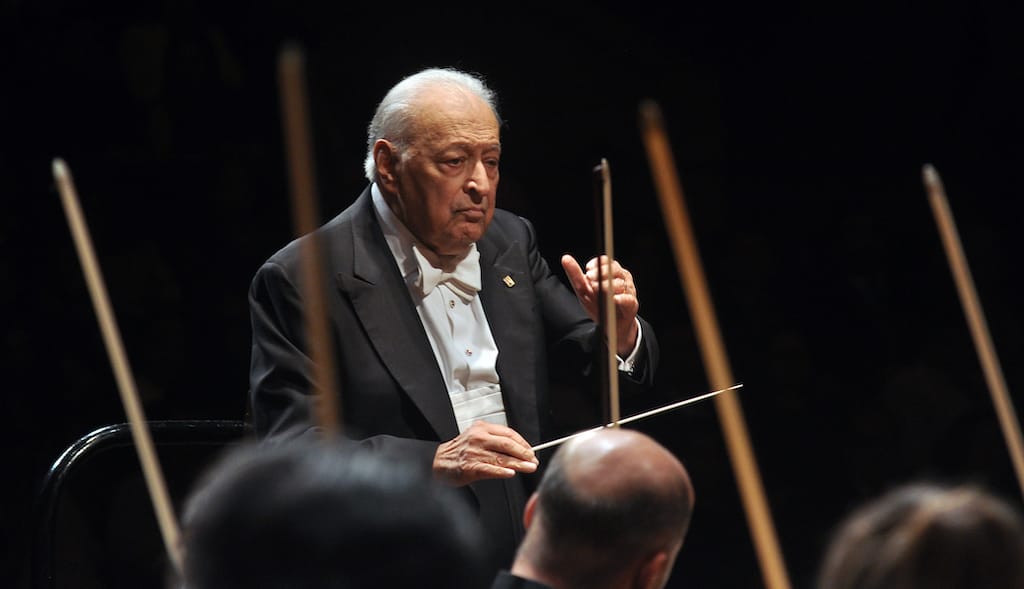Straussian Mastery: Zubin Mehta's Majestic Return with Richard Strauss
Zubin Mehta’s powerful interpretation of Richard Strauss' masterworks captivated audiences in Mumbai. With Angel Blue’s sublime vocals and the Symphony Orchestra of India’s stellar performance, it was an unforgettable evening of virtuosity and profound emotional depth.

A year ago, I wrote a column in this paper on the historic concert, the first time Maestro Zubin Mehta conducted the Symphony Orchestra of India (SOI) in Mumbai. At the time one didn’t know whether it was a one-off, or whether he would return to conduct more concerts with the orchestra.
So it was exciting to learn that he was returning in August this year to conduct not just one, but two sets of concerts with the SOI. (And he plans to return early next year for more concerts with the orchestra).
The first two concerts were devoted to Johann Strauss II (1825 – 1899), the Waltz King. And a week later, he would conduct two more concerts featuring a different Strauss, the outstanding German Romantic composer and conductor of the late 19th and early 20th centuries, Richard Strauss (1864 -1949).
I had to choose, as the week separating the two Strausses made it inconvenient to go to both. I chose Richard over Johann, as that concert programme interested me more, with good reason.
Mehta has conducted and recorded the music of Richard Strauss with various orchestras all his life. There is also a direct pedagogical lineage between him and Strauss, as Mehta’s conducting teacher in Vienna (1954-56) was the great conductor Hans Swarovsky (1899-1975) who (apart from recognizing Mehta's abilities early on, describing him as a "demoniac conductor" who "had it all") had studied the art of conducting from Strauss himself. Mehta belongs in the pantheon of great Straussian conductors, along with Mengelberg, Beecham, Böhm, Ormandy, Karajan, Kempe, and Blomstedt. From the moment I heard Mehta would be conducting Richard Strauss, I knew I just had to be there.
The programme had Strauss’ achingly beautiful Four Last Songs, book-ended by two of his formidable orchestral tone poems, ‘Don Juan’ and ‘Ein Heldenleben’ (A Hero’s Life).
It gave us a sonic tour through the life of Richard Strauss. ‘Don Juan’ (1888) was his first tone poem, written when he was 24. ‘Ein Heldenleben’ (1898) was his eighth work in the genre, and exceeded any of its predecessors in its orchestral demands. The central work in the programme, his Four Last Songs, was completed in 1948, just a year before Strauss’ death.
Around the time he wrote Four Last Songs, Strauss was quoted as saying with some modesty, “I may not be a first-rate composer, but I am a first-class second-rate composer.” This concert programme alone proves what a first-rate composer he was.
As a string player myself, I know what ferociously difficult demands the whole concert programme, especially the two supercharged tone poems make of the upper strings. A look at the conductor score reveals that both ‘Don Juan’ and ‘Ein Heldenleben’ are in effect concertos for orchestra in all but name. It isn’t surprising that excerpts from all three featured works are frequently chosen as orchestra audition pieces.
The Symphony Orchestra of India played out of their skins that evening, relishing every opportunity to demonstrate their virtuosity. Richard Strauss is a masterful story-teller, and under Mehta’s deft baton, (he conducted both tone poems without the score) all the ‘dramatis personae’ in both tone poems, too numerous to enumerate, were conjured up with great attention to detail and much empathy.
All three works also have incredibly exposed violin solos that have tested the technical and expressive abilities of concertmasters ever since. Here Adelina Hasani’s heart-felt, flawless playing deserves special mention and admiration.
Four Last Songs has a strong Indian connection, something that my friend Nikhil Sardana, founder and editor of Serenade has written about so elaborately and wonderfully.
Jayachamarajendra Wadiyar (1919 – 1974), the last ruling Maharaja of Mysore (r. 1940 -1950) was a passionate and extremely knowledgeable lover and patron of western classical music. His aspirations to be a concert pianist were cut short only due to the untimely deaths of his father in 1939 and his reigning uncle in 1940, when he had to succeed to the Mysore throne. His palace had a mammoth record collection (over 20,000), state-of-the-art sound systems and many concert-grand pianos.
Wadiyar was the first president of the Philharmonia Concert Society London in 1948. His largesse of 10,000 pounds a year for three years enabled the Philharmonia Orchestra to engage Herbert von Karajan, who would become the most important of the orchestra’s young conductors to its development.
Among many other such contributions to classical music, Wadiyar, even though he could himself not be present, magnanimously offered a $4,800 guarantee for the posthumous premiere performance of Strauss’ Four Last Songs at the Royal Albert Hall in London on 22 May 1950, sung by Kirsten Flagstad, accompanied by the Philharmonia Orchestra conducted by Wilhelm Furtwängler. The performance was recorded and shipped to Wadiyar in Mysore.
As the title suggests, Strauss’ Four Last Songs (for soprano and orchestra) are among his final completed works. American soprano Angel Blue (winner of the Grammy Award for Best Opera Recording for the Metropolitan Opera production of Porgy and Bess in the 63rd Annual Grammy Awards 2021) flew in at the last minute in place of the scheduled singer Krassimira Stoyanova for the Mehta-SOI concert.
It is a work that Blue knows well, has sung to rave reviews before and she is scheduled to perform it again next year with the Rotterdam Philharmonic Orchestra under Yannick Nezet-Seguin.
I downloaded the German text of Four Last Songs (Vier Letzte Lieder), poems by Joseph von Eichendorff and Herman Hesse (who also wrote the 1922 novel ‘Siddhartha’ that deals with the spiritual journey of self-discovery of a man named Siddhartha during the time of the Gautama Buddha, and adapted in 1972 for film starring Shashi Kapoor and Simi Garewal) on my tablet to follow Blue as she sang the work. The songs are an almost spiritual contemplation on the subject of death.
Blue’s plush velvet tone poured out with a fine legato and amazing breath control, while Mehta, renowned as a sensitive accompanist to soloists from singers to instrumentalists, coaxed the ideal support to her from the SOI. The beautiful horn solos were played by Bernardo Cifres.
The last two Lieder, ‘Bein Schlafengehen’ (On Falling Asleep) and ‘Im Abendrot’ (At Sunset), my favourite, were so exquisite, that it made all the effort and expense of my Mumbai trip well worth it. It’s a pity that the spell was broken so abruptly by enthusiastic applause at the end without just a moment’s reflective pause that such a glorious performance warranted.
I’ve probably said this before, but each time I hear the SOI, I wish the orchestra were around in my own youth. I’d certainly have focussed my energies on joining their ranks rather than on pursuing medicine. I hope the young Indian musicians in the SOI realise just how blessed they are, to have the opportunity to play such formidable masterworks of the orchestral repertoire under larger-than-life conductors and with such first-rate soloists.
This article first appeared in The Navhind Times, Goa, India.





